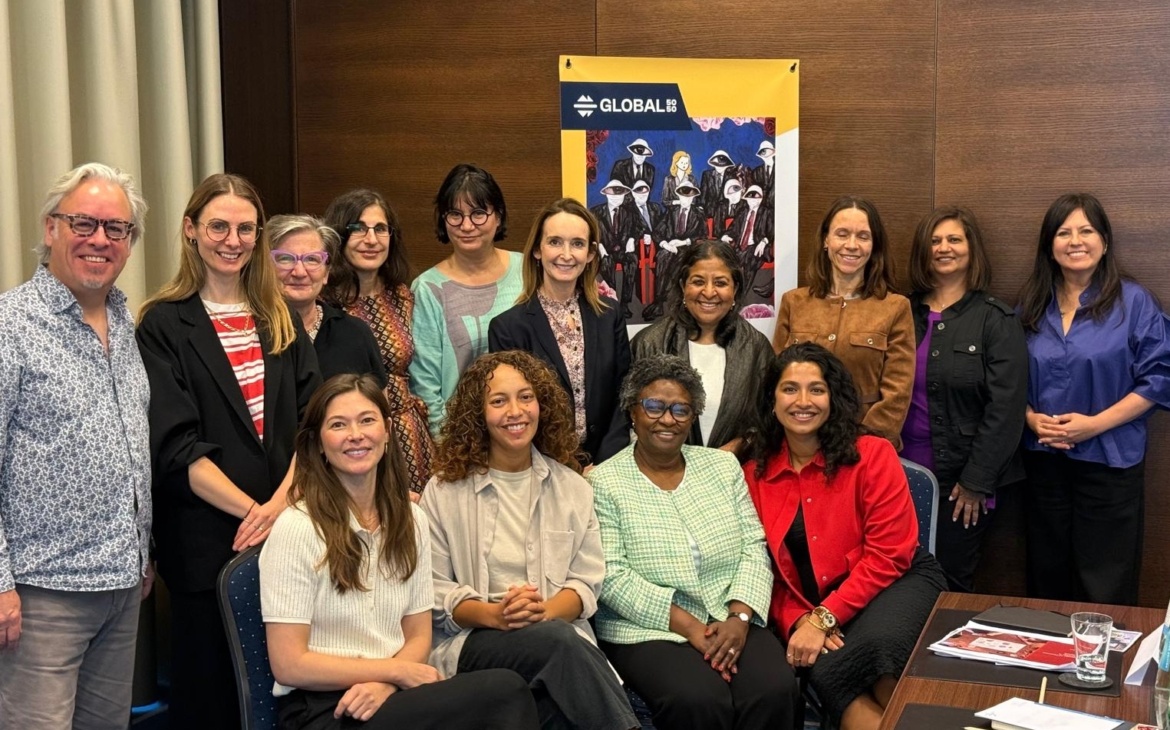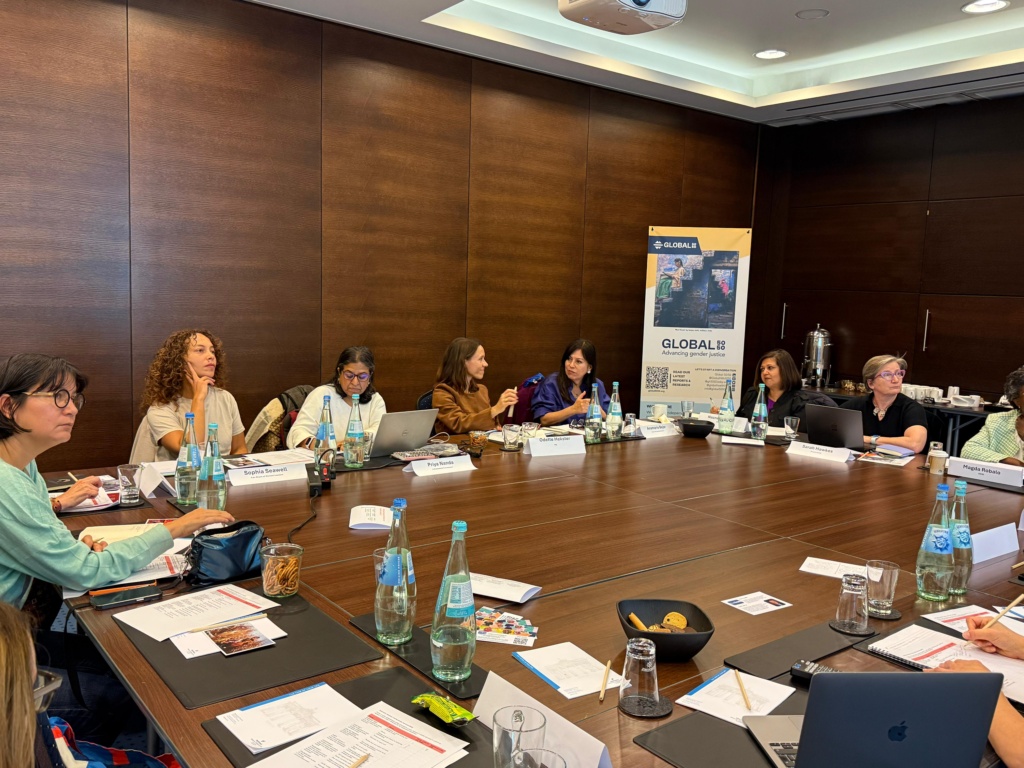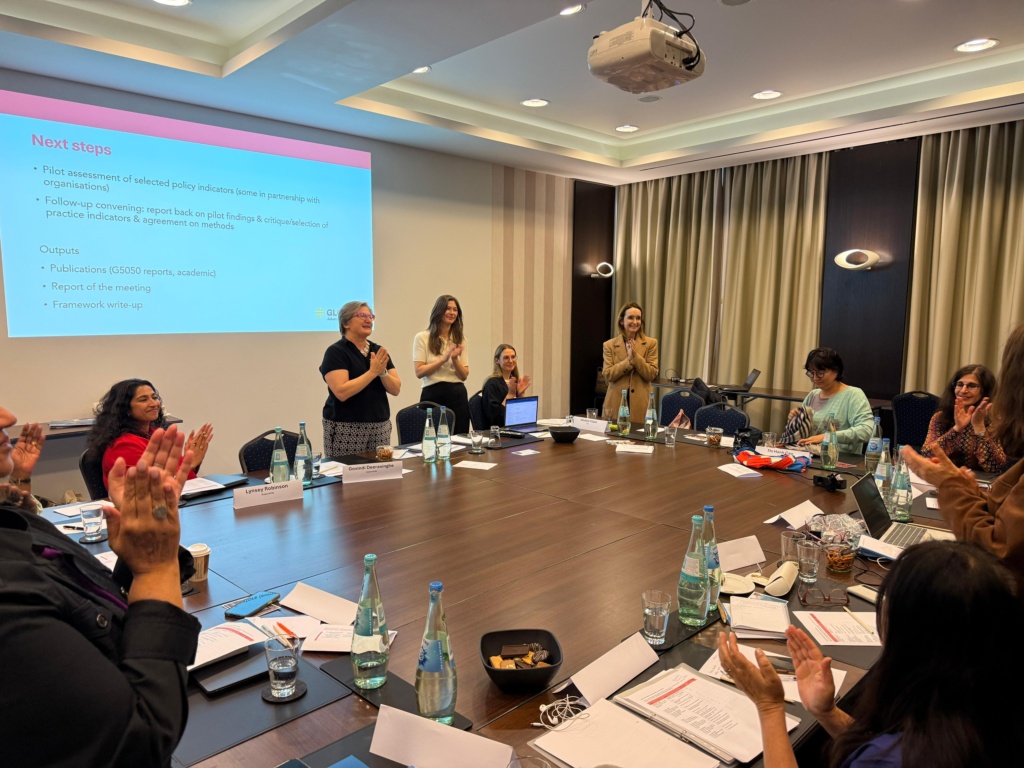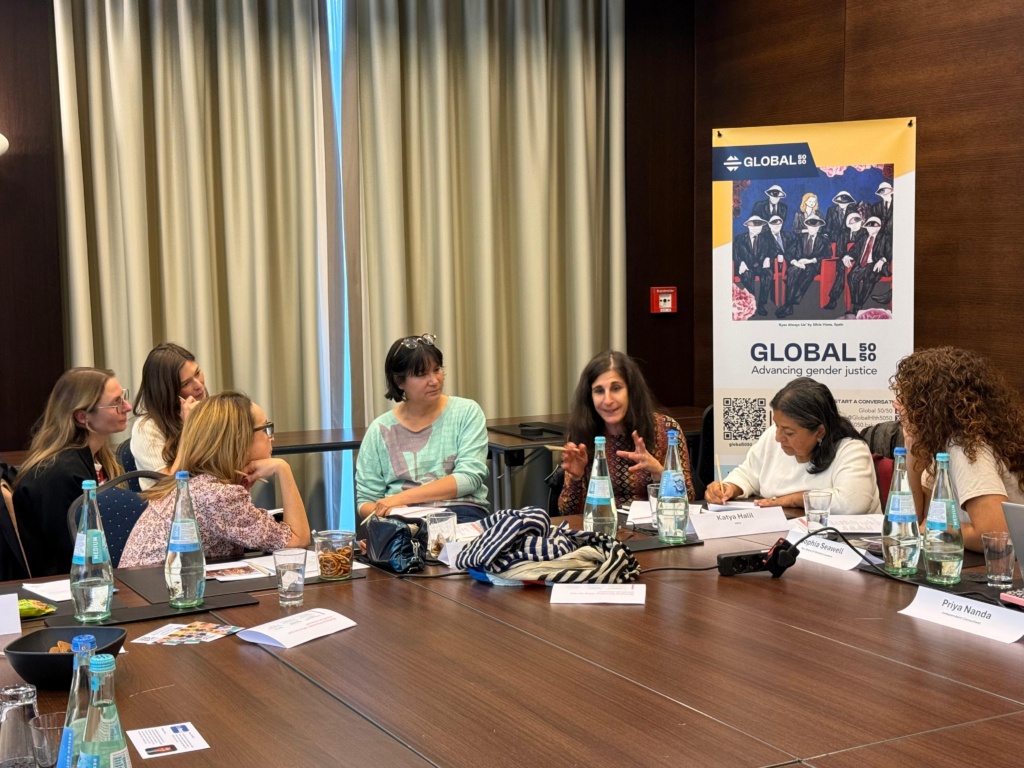Fair, Inclusive, Feminist: Measuring Feminist Leadership in Global Health
In a time of growing pressure and precarity across the global health sector, feminist leadership offers a roadmap for organisational resilience. At Global 50/50, we are advancing a new framework to translate feminist principles into measurable practice, helping organisations live the values they espouse.
Since January, Global 50/50 has been convening gender justice advocates from across the sector to reflect on how equity, care, and accountability can be embedded into the fabric of global health work at a time when organisations and their staff are under unprecedented financial, political, and emotional strain.
Our most recent session, held in Berlin during the World Health Summit, focused on how feminist principles can be measured and what difference that could make.
Building on a draft framework by researcher and advocate Dr Priya Nanda, the workshop went beyond technical consultation; it was a space for catharsis, reflection and connection. Participants shared the relief of being able to speak honestly about the painful trade-offs required to survive in an increasingly hostile political environment, about power, layoffs, and the contradictions of working for justice within hierarchical systems. The discussion underscored what feminist spaces do best: creating room for listening, learning, and mutual support, while fostering courage, connection and action.
Feminist leadership, as several participants put it, is both a moral compass – anchored in empathy, transparency, and accountability and a practical toolkit for building more effective, inclusive organisations.
The emerging framework proposes that feminist leadership operates across three interconnected levels:
-
-
- Individual: fostering self-awareness, empathy, and critical reflection on one’s power and privilege.
-
-
-
- Relational: nurturing trust, collaboration, and mutual accountability within teams and peer relationships.
-
-
-
- Structural: embedding fairness and equity into organisational systems, through transparent pay policies, equitable recruitment and promotion, and inclusive governance.
-
These levels intersect or interact to create holistic transformation within organisations. As one participant observed, “Deep transformation has to happen both at the individual and organisational level, they are mutually reinforcing.”
Across the conversation, a few truths stood out. Commitments must be resourced, policies without investment risk becoming symbolic. Measurement must be contextual, feminist principles look different in small grassroots networks and large global NGOs. And above all, practice matters as much as policy, how organisations enact values through daily relationships is as important as what’s written in HR manuals.
Global 50/50 is laying the groundwork with partners to refine and pilot a practical tool for assessing feminist leadership. Together, we will test indicators across a small group of organisations and explore how they can be adapted to different contexts.
The goal is not to prescribe, but to learn – to build an evidence base for translating feminist principles into measurable policies and practices that make organisations stronger, more just, and more effective.
If your organisation is interested in piloting or co-developing this tool, get in touch with us at Global 50/50. Together, we can measure what matters.
Voices from the room:
The conversation in Berlin brought together leaders and advocates united by a shared purpose – to make feminist leadership tangible, measurable, and real. Here’s what some participants had to say.
“Bringing people together to define what feminist leadership means in practice is powerful. It moves us toward shared understanding and accountability. At FAIR SHARE, we’re excited about working with Global 50/50 to make feminist leadership tangible, measurable, and transformative.”
Sophia Seawell, FAIR SHARE
“I’m grateful to Global 50/50 for convening on feminist principles – it’s opened my eyes to ideas I hadn’t encountered before. This conversation has inspired me to learn, to listen, and to think about how we nurture the next generation of women leaders.”
Thi Hanh Cao, DNDi
“Despite decades, if not a millennia, of work advancing women’s rights in health, the “f-word” (feminism) is still considered almost forbidden. And that’s what makes Global 50/50’s work all the more important. You are incredibly trailblazing. Many organisations have been enriched and strengthened by the work that you’re doing and I’m grateful for this space you’ve provided for us today.”
Jocalyn Clark, BMJ




